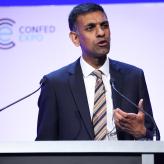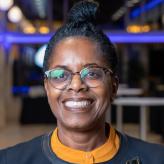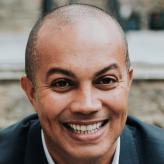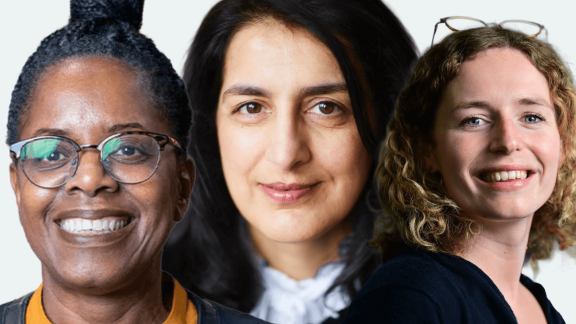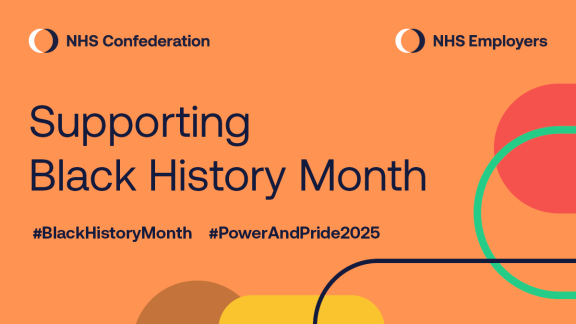Celebrating Black History Month: an evening with Lord Adebowale CBE and Baroness Warsi
Speakers
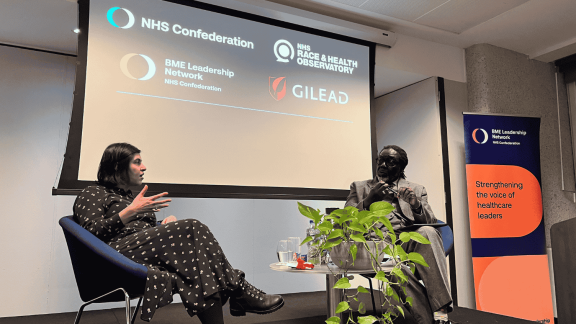
Our annual Black History Month celebration was hosted in partnership with the NHS Race and Health Observatory, with support from Gilead Sciences. The evening featured an insightful and in-depth conversation between Lord Victor Adebowale CBE and The Rt Hon. Baroness Sayeeda Warsi.
Lord Adebowale CBE invited reflections from Baroness Warsi on her personal journey through her career as lawyer, politician and a member of the House of Lords. This evening provided exclusive insights on what it means to be a pioneering leader from a BME background.
Event summary
- Joan Saddler OBE, director of partnerships and equality, NHS Confederation opened the event with an uplifting message about the importance of standing firm in challenging times, recognising the dedication of long-serving NHS staff.
- Professor Habib Naqvi MBE, CEO of the NHS Race and Health Observatory discussed the importance of integrating black history into everyday culture and education, advocating for continuous learning and recognition of ongoing challenges. “It should be hardwired into our culture, into our education, and into our workplaces as well.” Access Professor Naqvi's slides from the evening.
- Baroness Sayeed Warsi shared “E&I has gone from being something that absolutely people wanted to be a part of and championed or felt they had to because they were going to be held to account for it, to something that they now rail against because they think that's going to be politically expedient.”
Inequalities in healthcare
- Professor Naqvi presented alarming statistics on health inequalities, particularly affecting black women, highlighting that progress is yet to be made and the need for systemic change in NHS practices to address racial biases in medical assessments and treatments.
- Lord Victor Adebowale CBE referenced the death of his mother “She received a black service, not an NHS service. If you are black, if you are various shades of us, you do suffer more. This is evidence-based.”
- Baroness Warsi stated “We know that some people are not seen as equal and not seen as having equal worth and equal value, and that can be everybody from being paid less to being seen as culturally not a part of this space, that requires intervention.”
- Baroness Warsi said “The world is now far more dangerous than it has ever been since the end of the Second World War and we are on the brink of something incredibly dangerous alongside the development of hyper-communication through the form of social networking. This is a fight for all of us, there is a reversal of women's rights going on, there is a reversal of gay rights going on, there is a reversal of black rights, and they are all simultaneously happening because this no longer works for men with power and money. Until we unite as people from different communities and understand that the very essence of rights and democracy and human rights are at risk, I think we're all going to lose the battle.”
Building trust
- Trust was identified as a key determinant of health, with discussions around the breakdown of trust during the pandemic and the necessity of rebuilding it within communities.
- Professor Naqvi said “Trust determines people's choices as to whether or not they take up a medical intervention, or whether or not they take part in medical research or clinical trials. It's really important that we focus on building and rebuilding that trust. The success of any health care plan for the future will be dependent upon the degree to which people can relate to it and people can trust what's in that plan. If we're in the business of tackling inequalities and health inequalities, then we need a workforce that's fully engaged, fully supported, and representative at all levels across the NHS.”
Challenges and solutions
- The conversation addressed the impact of racism and discrimination within the NHS workforce, with a call for accountability and systemic reforms.
- Personal stories and experiences from various audience members highlighted the ongoing struggles and hopes for a more inclusive future.
- Emphasis was placed on the importance of collaboration and shared responsibility in promoting equity and justice in healthcare.
- Professor Naqvi introduced the Seven Principles of Anti-Racism, aimed at guiding organisations towards meaningful change. “In order to change something, you need to acknowledge that there's something to change. You need to acknowledge, in this case, that racism exists. And without focusing on that, without acknowledging that actually there's an issue here, people, organisations, our system, our society as a whole would not be able to shift from that first stage to the subsequent stages and make those changes.”
- The need for empathy and compassionate leadership was also highlighted, with actionable strategies for leaders to adopt compassionate practices.
- Anita Raleigh, director of government affairs, UK and Ireland at Gilead Sciences spoke about a powerful initiative to raise awareness about racial disparities in breast cancer care. Partnering with Black Women Rising, Gilead Sciences created a play based on the real experiences of six black women, which was screened in Parliament and hospitals. The project highlighted how their healthcare journeys differ from white women’s, sparking vital conversations about systemic change. One key issue raised was the lack of inclusive prosthetics and wigs for Black women post-mastectomy. This seemingly small detail has a profound impact. Anita urged healthcare leaders to act, “Meaningful change is possible now, not just through isolated efforts”.


